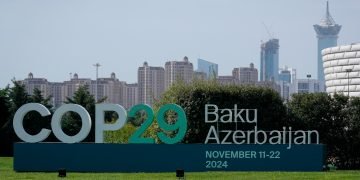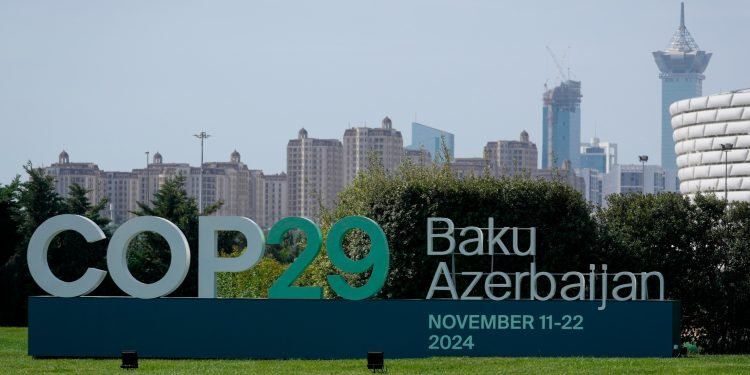The much-anticipated COP29 conference has officially begun in Azerbaijan, drawing global leaders and industry representatives to discuss and implement strategies for tackling climate change. This year’s focus includes a critical look at the logistics sector, aiming to foster sustainable practices and push for industry-wide changes to reduce carbon emissions. As logistics and transportation remain significant contributors to global emissions, COP29 in Azerbaijan marks a critical juncture for the industry to adopt greener solutions.
Logistics at COP29: Key Agenda Points
COP29 has already outlined several agenda points concerning logistics, focusing on measures to make the sector more environmentally friendly. Core themes include:
- Investment in Green Infrastructure: Creating more sustainable logistics infrastructure with green corridors to connect high-volume trade routes.
- Accelerating Electrification: Emphasizing electric vehicle (EV) adoption and alternative fuel sources like hydrogen to phase out fossil-fueled trucks and ships.
- Promoting Intermodal Transport: Encouraging the seamless integration of rail, road, and maritime transport for efficient, lower-emission logistics chains.
- Establishing Emission Standards: Introducing stricter regulations for emissions that logistics companies must meet within the next decade.
Immediate Impact: The Rise of Green Corridors
Green corridors, designed to enable low-emission transport across major trade routes, are a significant focal point for COP29. Azerbaijan, serving as a central point between Asia and Europe, aims to leverage its geographic advantage to establish green transport links in collaboration with neighboring countries. These corridors would facilitate efficient, eco-friendly trade across regions, minimizing emissions on high-density routes. As companies and governments continue to invest in these routes, this model could become a global standard for sustainable logistics.
Electrification and Fuel Transition Commitments
Another prominent initiative at COP29 is the commitment to electrifying the logistics sector. Azerbaijan, along with other attending nations, is championing the development of necessary charging and hydrogen refueling infrastructure. Subsidies and financial incentives were proposed to encourage logistics companies to transition to electric fleets, even as high upfront costs and the need for extensive charging infrastructure pose initial challenges. COP29 is also pushing for widespread adoption of EVs in city centers to reduce urban pollution and congestion.
Pushing for Transparent and Sustainable Supply Chains
COP29 delegates emphasized transparency, with recommendations for logistics companies to report and track their carbon emissions actively. This accountability could become a cornerstone for sustainable logistics, encouraging companies to take actionable steps to offset their environmental impact. Azerbaijan’s framework encourages companies to evaluate their entire supply chain and consider sustainable options, from sourcing materials to choosing low-emission transportation modes.
Challenges Ahead and the Path Forward
While the logistics sector has shown an encouraging response, significant challenges remain. Transitioning to alternative fuels, building sufficient infrastructure, and achieving intergovernmental cooperation are hurdles that require long-term planning and commitment. The discussions at COP29 indicate that a supportive policy environment, coupled with financial support from international organizations, may pave the way forward.
Azerbaijan’s Legacy for COP29
As COP29 continues in Azerbaijan, it is clear that the event is shaping the future of logistics by setting a sustainable agenda that will influence the industry for years to come. By supporting the transition to green corridors, fostering collaboration between nations, and pushing for transparency, COP29 is laying the foundation for a greener, more resilient logistics network. For companies in the industry, COP29 serves as a call to action to adopt practices that align with environmental objectives and make sustainability an integral part of their operations.























